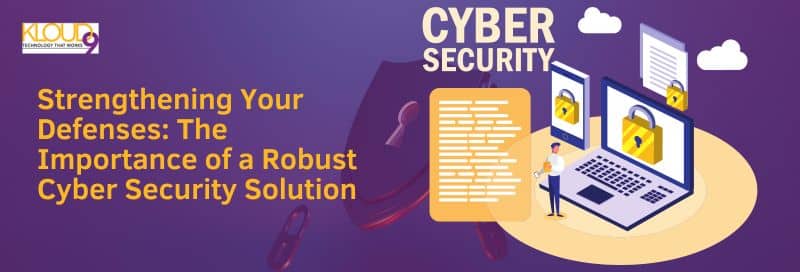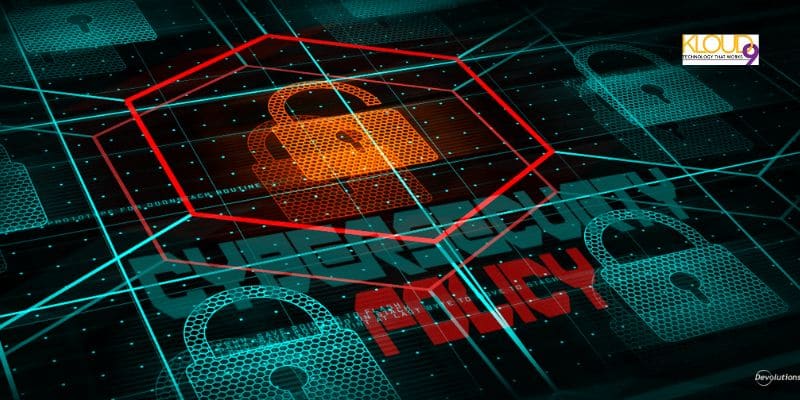In a world that is becoming increasingly connected, our lives have become intertwined with the digital realm. From our personal lives to our professional endeavors, the digital landscape has become a critical component of how we function as a society. However, with this increased reliance on technology comes an inherent vulnerability: the threat of cyberattacks. As our reliance on the digital world grows, so does the importance of a robust cybersecurity solution to protect ourselves, our businesses, and our data from the ever-evolving landscape of cyber threats.
Cybersecurity: The Invisible Shield
Imagine your digital presence as a fortress in the vast and often treacherous cyberspace. This fortress contains your personal information, financial data, and possibly even your company's most valuable trade secrets. Just as ancient castles were fortified with thick walls, moats, and armed guards to fend off invaders, your digital fortress requires a robust cybersecurity solution to protect it from the constant barrage of cyber threats.
Cybersecurity serves as the invisible shield that guards your digital assets, shielding them from malicious actors who seek to exploit vulnerabilities in your defenses. In today's digital age, cyberattacks have grown increasingly sophisticated, posing significant risks to individuals, businesses, and even nations. Without a strong cybersecurity strategy, you are leaving the gates of your digital fortress wide open, inviting intruders to ransack your most precious assets.
The Growing Threat Landscape
As technology advances, so do the capabilities of cybercriminals. It is no longer just about protecting your computer from viruses or spam emails; the threat landscape has evolved far beyond that. The modern cybercriminal employs a wide array of tactics, from phishing attacks that trick individuals into revealing sensitive information to ransomware attacks that can incapacitate entire organizations by encrypting their data and demanding a ransom for its release.
In recent years, high-profile cyberattacks have made headlines around the world. Large organizations and government agencies have been targeted, leading to data breaches, financial losses, and damaged reputations. The consequences of such attacks are far-reaching and can affect not only the targeted entities but also the individuals and customers whose data is compromised.
The Importance of Robust Cybersecurity Solutions
1. Protection of Personal Information
One of the most important aspects of cybersecurity is the protection of personal information. We store a vast amount of sensitive data online, from our personal identification information to financial data and even personal communication. Without proper cybersecurity measures in place, this information is at risk of falling into the hands of cybercriminals.
Think about the consequences of identity theft, where an attacker gains access to your personal information and uses it for fraudulent purposes. With the right cybersecurity solutions in place, you can significantly reduce the risk of such breaches, keeping your personal information secure and your identity intact.
2. Defense Against Financial Loss
Cyberattacks can lead to substantial financial losses for individuals and businesses alike. From unauthorized access to bank accounts to the theft of credit card information, cybercriminals have various ways to target your financial assets. The costs of recovering from a cyberattack can be exorbitant, including the expenses of legal actions, credit monitoring, and rectifying financial losses.
For businesses, the financial impact can be even more significant. A successful cyberattack can lead to financial losses, potential lawsuits, and damage to the organization's reputation. In some cases, it can lead to the closure of small businesses that need to prepare to handle the consequences.
3. Safeguarding Intellectual Property
Businesses invest heavily in research and development, and the protection of intellectual property (IP) is a vital aspect of their success. Cybersecurity solutions play a crucial role in safeguarding IP from theft or espionage. Proprietary software, product designs, and trade secrets are all valuable assets, and losing them to a cybercriminal or a competitor can be devastating.
Ransomware attacks, in particular, pose a significant threat to businesses as they can lead to the encryption and theft of valuable data. Robust cybersecurity measures, including regular data backups, network security, and employee training, are critical in preventing and mitigating the impact of such attacks.
4. Preservation of Reputation
One of a company's most important assets is its reputation. A single cybersecurity breach has the potential to negatively impact a company's reputation and customer trust for a long time. Customers' faith in the business may quickly decline if client data is compromised as a result of insufficient cybersecurity safeguards.
Consumers are less inclined to do business with an organization that has a track record of inadequate security procedures or data breaches. Such a tarnished reputation can lead to dwindling sales, a loss of market share, and the acquisition of important clients. Having a strong cybersecurity solution helps you keep your clients' trust and project a favorable image.
5. Protection of Critical Infrastructure
Beyond personal and business security, the importance of cybersecurity extends to the protection of critical infrastructure. Energy grids, water supply systems, transportation networks, and healthcare facilities all rely on digital systems to function efficiently. A breach of these systems could result in widespread disruption, loss of services, and even potential harm to human life.
Governments and organizations that manage critical infrastructure must invest in cybersecurity solutions to safeguard against potential cyber threats. A breach in these systems can have cascading effects, impacting not only the organizations involved but also the overall safety and well-being of society.
6. Compliance with Regulations
In recent years, governments around the world have implemented more stringent cybersecurity regulations to protect critical infrastructure and sensitive data. Businesses operating in various industries are often required to comply with industry-specific regulations. For example, healthcare organizations must adhere to the Health Insurance Portability and Accountability Act (HIPAA). At the same time, financial institutions must follow the Gramm-Leach-Bliley Act and the Payment Card Industry Data Security Standard (PCI DSS).
Failure to comply with these regulations can result in substantial fines and legal consequences. Therefore, cybersecurity solutions are not just a matter of best practice but also a legal requirement in many cases.
Conclusion
Whether you are an individual seeking to safeguard your personal information or a business looking to protect your valuable assets, taking cybersecurity seriously is not just prudent; it is imperative. The future of cybersecurity is being shaped by innovation, adaptation, and the dedicated work of cybersecurity professionals. By building a strong cybersecurity foundation, we can face the challenges of the digital age with confidence and security. Your digital fortress is only as strong as your cybersecurity solution—so fortify it, protect it, and thrive in the digital realm.




You must be logged in to post a comment.